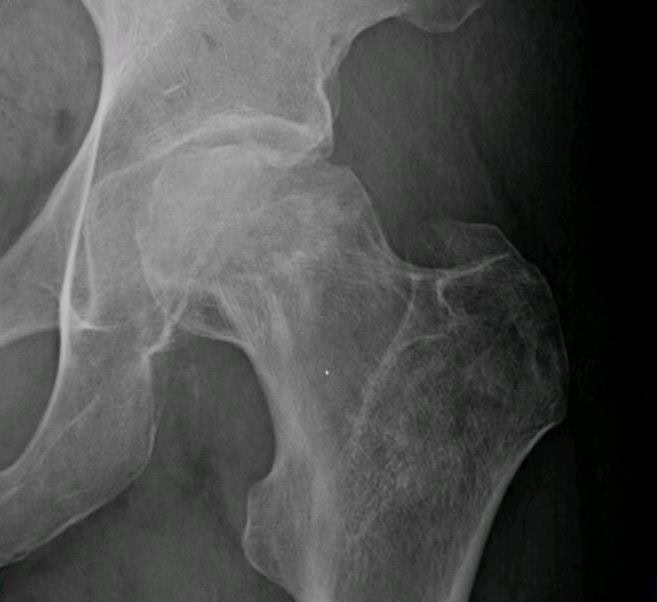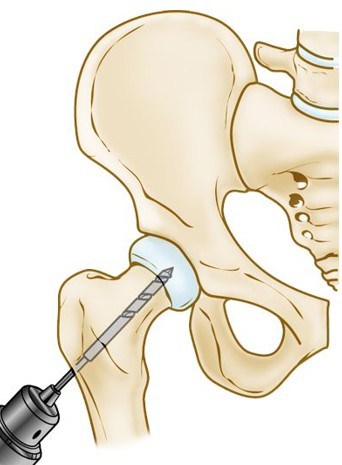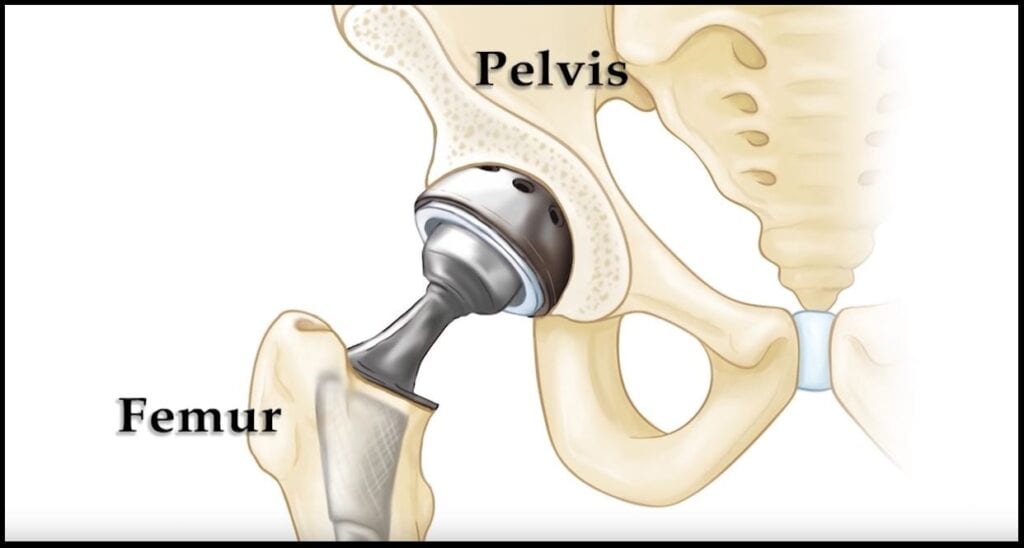What is avascular necrosis?
Avascular necrosis (AVN), or osteonecrosis, is a disease that arises as a result of temporary or permanent loss of blood supply to the bone. More specifically, avascular necrosis of the hip arises when the blood supply to the head of the thigh bone (also known as the femur) is disrupted.
If the blood supply is cut off entirely, the bone tissues die and the bone collapses, leading to severe osteoarthritis. While this condition may happen in any bone in the body, it frequently happens in the hip.

This condition may affect anyone, but it is most commonly seen in people between the ages of 40 to 65. In addition, men have a greater chance of developing this condition than women.
While this condition is largely irreversible, early diagnosis can help to treat and slow down the development of avascular necrosis in the patient. Hence, if you suspect you or someone you know might have avascular necrosis, do seek medical attention immediately.
What causes avascular necrosis?
There are two main types of AVN, traumatic or atraumatic. Traumatic AVN refers to AVN caused by injuries to the blood vessels supplying the bone. Common injuries that can cause AVN are hip fractures and hip dislocations.
Atraumatic AVN refers to conditions that arise from conditions other than injuries to the hip. These conditions usually cause damage to the blood vessels. Examples of such conditions include long-term use of medications such as steroids, prolonged or frequent diving, excessive intake of alcohol, and/or other pre-existing medical conditions such as sickle cell disease.
Do I have avascular necrosis?
Avascular necrosis usually occurs in stages, with patients in the earliest stages usually pain-free. However, as the disease progresses, you may start to experience pain in the groin region. At first, it may only hurt after you walk on the affected leg, but it may progress to pain even at rest.
In addition, you may also experience a more limited range of motion and may find yourself limping.
In severe cases of avascular necrosis, and if treatment is not sought, it may lead to the bone collapsing entirely and may result in severe osteoarthritis.
How is avascular necrosis diagnosed?
If your doctor suspects that you may have developed avascular necrosis, he or she might use one or more of the following methods to confirm the diagnosis:
Do note that the procedures of diagnostic imaging may involve the use of a contrast dye, so do let your doctor know if you have any allergies to the contrast medium.
Can avascular necrosis be cured?
In the early stages of the disease, with early appropriate treatment, it may be possible to cure the disease. Do seek treatment promptly if diagnosed to avoid more severe complications later on.
In the late stages, however, avascular necrosis cannot be reversed entirely, treatment options focus on slowing the progress of the disease and improving the quality of life of the patient. Your doctor will take factors such as age and severity of disease into account when deciding the best treatment option for you.
The treatment options (non-surgical and surgical) can be summarised below:
Non-surgical treatment options
Rest helps to minimise physical exertion on the joints. You will be asked to use walking aids as canes and crutches. Walking aids will help to decrease the loads passing through the joint, thereby relieving pain caused by avascular necrosis, and slowing the progression of the disease.
Your doctor may also prescribe you some nonsteroidal anti-inflammatory drugs (NSAIDs) to help manage the pain.
Your doctor may also refer you to a physiotherapist for physical therapy for you to learn some exercises that will help to ease joint pain and increase the range of motion.
Surgical treatment options
In the early stages, core decompression surgery may halt the progression of the disease. Your doctor will drill holes (cores) in the affected area to improve circulation to the area. Sometimes, injections or bone grafts may also be used to promote healing of the bone after the procedure is completed.

In the later stages, you may be recommended to undergo joint replacement. This is especially if there are features of osteoarthritis caused by late-stage AVN. Your doctor will replace the affected joint (eg hip/knee) with an artificial one. This procedure is said to be the most effective in relieving the pain and improving the mobility of patients with avascular necrosis. In the advanced stages of AVN, hip replacement is the best option for you to return to your activities of choice.

What can I expect after treatment? (Rehab and recovery)
If you have undergone a surgical core decompression procedure, you will require around 6 weeks to 3 months to fully recover from the surgery. During a follow-up appointment, sutures are usually removed by your doctor. In addition, your doctor will also check your bones using diagnostic imaging (X-rays) to see if they are healing effectively. You may also be placed on crutches to aid your mobility for around 6 to 8 weeks immediately after the surgery. If you have undergone a joint replacement procedure, you will also require around 3 to 6months to recover fully. Your doctor will also schedule follow-up appointments to check in on your status around six to twelve weeks after the surgery has taken place.
In both cases, you will have to undergo a course of physical therapy as part of your recovery. The therapist will teach you exercises to improve the range of hip motion, as well as strengthen muscles around the joint.
For an assessment of your condition, please book an appointment with Dr. Yong Ren.
Lorem ipsum dolor sit amet consectetur adipiscing elit ut arcu a dignissim suscipit non ac eget tellus in nisl mauris nec.
